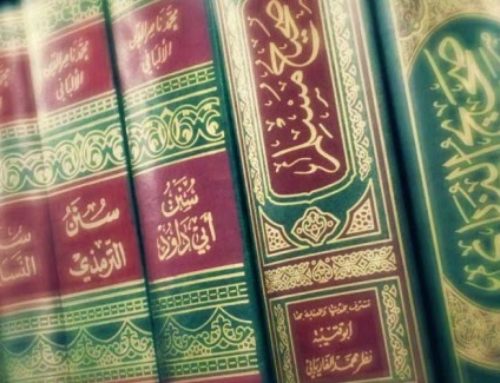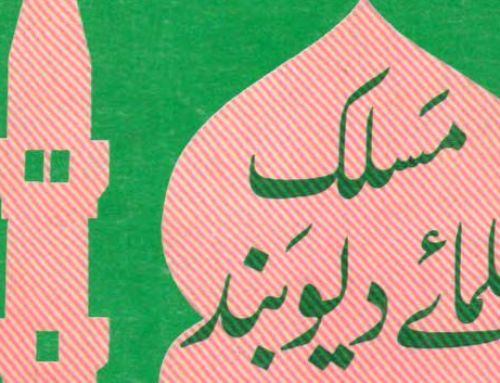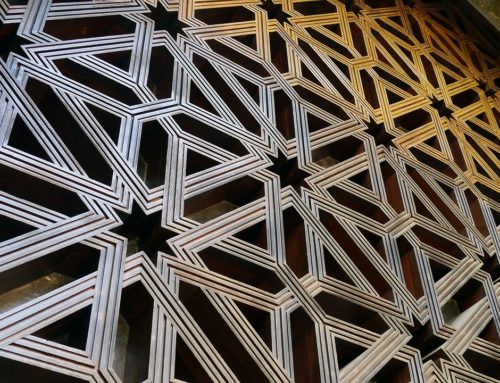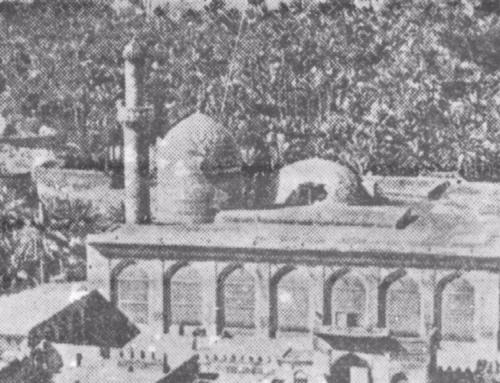Translated by Zameelur Rahman
Question:
Do you consider any being better than the Prophet (Allah bless him and grant him peace)?
Answer:
Our belief and the belief of our elders is that our chief, our master, our beloved and our intercessor, Muhammad, the Messenger of Allah (Allah bless him and grant him peace), is the best of all creatures and the best of them in the presence of Allah (Exalted is He). None is comparable to him, rather [none] come close to him (Allah bless him and grant him peace) in proximity to Allah (Exalted is He) and the elevation of his rank in His presence. He is the chief of the Prophets and Messengers and the seal of the purified and the Prophets as established in the texts. This is what we believe and acquiesce to Allah (Exalted is He). Our elders have expressed this in more than one book.
Question:
Do you allow the existence of a prophet after the Prophet (upon him blessing and peace), while he is the Seal of the Prophets and the meaning of his (upon him be peace) statement “there is no prophet after me” and those [statements] resembling it, have been mass-transmitted, and ijma’ has convened on this? What is your opinion of one who allows the incidence of this despite the presence of these texts? Have any of you or your elders said this?
Answer:
Our belief and the belief of our elders is that our chief, our master, our beloved and our intercessor, Muhammad, the Messenger of Allah (Allah bless him and grant him peace), is the Seal of the Prophets and there is no prophet after him, as Allah (Blessed and Exalted is He) said in His Book, “But he is the messenger of Allah and the Seal of the Prophets” (33:40). This is established in many hadiths that are mutawatir in meaning, by consensus of the ummah. Far be it that one of us said something contrary to this, since the one who denies this is according to us a disbeliever because he denies decisive and unequivocal texts.
Yes, our teacher and our master, chief of the intelligent scrutinisers, Mawlawi Muhammad Qasim al-Nanotwi (Allah Exalted is He have mercy on him), produced a novel insight by his critical mind, completing his sealship (khatamiyyah) in a complete manner and perfecting it in a perfect manner, as he (Allah Exalted is He have mercy on him) said in his treatise entitled Tahdhir al-Nas, the upshot of which is that:
Sealship is a genus under which are two species:
The first of them is “chronological sealship” (khatamiyya zamaniyya) which is that the time of his prophethood (Allah bless him and grant him peace) occurs after the time of the prophethood of all other Prophets and he is thus a chronological seal of their prophethood.
The second is “essential sealship” (khatamiyya dhatiyyah), which is that by the essence of his (Allah bless him and grant him peace) prophethood, the prophethood of all the Prophets is sealed and culminates in it. Just as he (Allah bless him and grant him peace) is the seal of the Prophets in time, he (Allah bless him and grant him peace) is also the seal of the Prophets in essence, since all that is accidental is terminated by that which is essential, culminate in it and do not surpass it. [1]If something is described as having an attribute that is essential, removal of that attribute will negate its essence; for instance, a “square” essentially has the attribute of being … Continue reading
Since his (Allah bless him and grant him peace) prophethood is essential and the prophethood of other Prophets is accidental, because their prophethood (upon them be peace) was secondary to his (Allah bless him and grant him peace) prophethood and he is the most perfect and honourable particular, the pole of the domain of prophethood and messengership and the medium of its contraction, he is [both] the chronological and essential seal of the Prophets. [2]Some of the proofs for this which Mawlana Qasim Nanotwi cites are as follows: 1. He writes, “just as he is the Prophet of the ummah, he is the Prophet of Prophets,” quoting the verse of … Continue reading His sealship is not limited to chronological sealship since it is neither a big virtue nor an increase in his rank that his (Allah bless him and grant him peace) time comes after the time of the Prophets before him [3]This argument was put forward long before Mawlana Nanotwi by the early hagiographer, al-Hakim al-Tirmidhi (d. 320), in his work Khatm al-Awliya. After explaining the deep spiritual significance of … Continue reading, rather complete supremacy, extreme elevation, splendid glory and radiant pride reaches its utmost when his (Allah bless him and grant him peace) sealship is [both] essential and chronological. As regards to when it is limited to chronological sealship, his supremacy and his (Allah bless him and grant him peace) elevation in its perfection is not attained and his complete and comprehensive excellence is not acquired.
This insight from him (Allah Exalted is He have mercy on him) became apparent in his demonstration of the magnitude of his (Allah bless him and grant him peace) rank, the immensity of his proof, his exaltation and his veneration as concluded by the verifiers (muhaqqiqun) from our masters, the ‘ulama, like al-Shaykh al-Akbar [ibn al-Arabi], al-Taqi al-Subki and the Pole of Existence Shaykh ‘Abd al-Quddus al-Gongohi (Allah Exalted is He have mercy on them). The mind of many of the ancient ‘ulama and the erudite intellectuals, in what we believe and perceive, did not reach the pavilions of his courtyard.
This [belief], according to the Indian innovators, is disbelief and misguidance. They whisper to their followers and their friends that it is denial of the sealship (Allah bless him and grant him peace) [4]The clearest passage in Tahdhir al-Nas, showing Mawlana Nanotwi did not deny chronological sealship and in fact strongly supported it, is found on pages 9-10. After citing the narration “there … Continue reading. [This is] far, very far! By my life, this is undoubtedly the most slanderous calumny and the greatest falsehood and slander. Nothing prompted them to this except contempt, malice, envy and hatred for the people of Allah (Exalted is He) and the elite of His servants. This is how the Divine Pattern (sunnat Allah) proceeds when it comes to His Prophets and His Friends.
Al-Muhannad ‘ala l-Mufannad ya’ni ‘Aqa’id ‘Ulama Ahl Sunnah Deoband, pp. 49-53
| ↑1 | If something is described as having an attribute that is essential, removal of that attribute will negate its essence; for instance, a “square” essentially has the attribute of being “four-sided”, and once it is “three-sided” or “five-sided” it is no longer a “square”. If something is described as having an attribute that is accidental, removal of that attribute will not negate its essence, like if a particular square was coloured red, removal of that colour would not negate it being a square.
Here, the prophethood of the Prophet (Allah bless him and grant him peace) is described as essential i.e. its removal will negate his essence, while the prophethood of all other Prophets is described as accidental i.e. if it was hypothetically removed, it would not affect their essences. Furthermore, Mawlana Qasim Nanotwi distinguishes between essential and accidental prophethood by explaining that “the one who has an accidental attribute, his attribute is derived (muktasab) from the one who has an essential attribute, and the one who has an essential attribute, his attribute is not derived (ghayr muktasab).” (Tahdhir al-Nas, p. 4) He uses sunlight as an illustration, since the light in the sun is not borrowed, but when it reflects onto foreign objects, the light in those objects are accidental and borrowed. For proofs cited by Mawlana Nanotwi in support of this view, that the prophethood of the Prophet (Allah bless him and grant him peace) is essential and the prophethood of other Prophets is accidental, see next footnote. |
|---|---|
| ↑2 | Some of the proofs for this which Mawlana Qasim Nanotwi cites are as follows:
1. He writes, “just as he is the Prophet of the ummah, he is the Prophet of Prophets,” quoting the verse of the Qur’an, “[Remember] when Allah took the covenant of the Prophets: ‘That which I have given you of scripture and wisdom, then comes to you a Messenger [i.e. the Prophet Muhammad (Allah bless him and grant him peace)], confirming what is with you; you will surely believe in him and help him” (3:81) (Tahdhir al-Nas, p. 4). This verse illustrates that the prophethood of the Prophet (Allah bless him and grant him peace) is given precedence to the prophethood of all other Prophets. This interpretation is supported by the exegesis of al-Subki who said, “If we assume he came in the time of [earlier Prophets], he would have been sent to them [as a Messenger] and it would be a prophethood and messengership inclusive of all His creation from the time of Adam to the Day of Resurrection, and the Prophets and their peoples would be from his ummah. Hence the Prophet (Allah bless him and grant him peace) is the Prophet of the Prophets (nabi al-anbiya). Were his mission to coincide with the time of Adam, Nuh, Ibrahim, Musa and ‘Isa, it would be incumbent on them and on their peoples to believe in him and render him help. For this [reason] ‘Isa will come in the end times with his Shari’ah.” (Quoted by ‘Allamah ‘Abd al-Hayy al-Lucknawi in his endorsement of Tahdhir al-Nas, p. 39) This passage from al-Subki also shows that hypothetically assuming the Prophet (Allah bless him and grant him peace) came before other prophets is a legitimate supposition and does not entail factual possibility. Mawlana Nanotwi hypothesises in a similar manner, but this was unfortunately misconstrued by some to mean factual possibility. 2. The hadith, “I was a Prophet while Adam was between spirit and body” (Sunan al-Tirmidhi, Musnad Ahmad), as it indicates the prophethood of the Prophet (Allah bless him and grant him peace) was essential and predated Adam’s creation, while the prophethood of the other Prophets was contingent (mentioned in Tahdhir al-Nas, p. 7). That this meaning has a connection with the term Khatam al-Nabiyyin is indicated by a similar hadith transmitted by al-Bayhaqi and Ahmad from al-‘Irbad ibn Sariyah that the Prophet (Allah bless him and grant him peace) said, “I was the Seal of the Prophets with Allah, while Adam was still in clay,” which indicates that the sealship that is intended here is essential, not chronological. 3. The hadith, “If Musa were alive amongst you, he would have no option but to follow me” (Musnad Ahmad), again indicating the prophethood of other Prophets was secondary to his prophethood (mentioned in Tahdhir al-Nas, p. 4). |
| ↑3 | This argument was put forward long before Mawlana Nanotwi by the early hagiographer, al-Hakim al-Tirmidhi (d. 320), in his work Khatm al-Awliya. After explaining the deep spiritual significance of the term Khatam al-Anbiya, including that it means that all the perfections of prophethood combined in the Prophet (Allah bless him and grant him peace), he responded to the common understanding that the term was restricted to chronological sealship by saying, “What is the virtue in this, and what is the knowledge in this?” He then cited a narration, indicating the term khatam denotes virtue and excellence. (See: Kitab Khatm al-Awliya, Edited by Othman I. Yahya, Imperial Catholique, Beirut, pp. 338-342)
Mawlana Nanotwi also lists several reasons why the verse (33:40) in which the Prophet (Allah bless him and grant him peace) is described as Khatam al-Nabiyyin must be in the context of praise, including that no other neutral quality, like lineage, colour or shape, are mentioned in the Qur’an in respect to his prophethood, and when describing great historical personalities, neutral qualities that some may misconstrue as blemishes, are usually not mentioned (see Tahzir al-Nas, pp. 3-4) |
| ↑4 | The clearest passage in Tahdhir al-Nas, showing Mawlana Nanotwi did not deny chronological sealship and in fact strongly supported it, is found on pages 9-10. After citing the narration “there is no prophet after me” and explaining that it is mutawatir (mass-transmitted) in meaning, and that there is ijma’ on the Prophet (Allah bless him and grant him peace) being the last Prophet, he says, “just as the one who denies the number of rak’ats [of salah] is a kafir, the one who denies the chronological sealship is a kafir.” (p. 10). Since the book was written as a response to a query on the athar of Ibn ‘Abbas, it should be noted that ‘Allamah ‘Abd al-Hayy al-Lucknawi who endorsed this work, wrote in his endorsement that this hadith confirming the existence of prophets on other earths is sound and authentic and, although the other earths had “final prophets” relative to their own earths, the finality of our Prophet (Allah bless him and grant him peace) is absolute and includes the prophets on all earths; and he did not suggest in any way that Mawlana Nanotwi’s book contradicted this view. |







Subhanallah. The translation of the piece is truly brilliant. WS.
assalamu ‘alaykum,
Isn’t it a bit shaky to start saying thing such as that there is nothing special about being the last messenger in and of itself? Which previous scholars had said such a thing? Mawlana Khalil himself states it was a ‘novel’ explanation.
Also is it true that Imam Laknawi also was against this writing, such that he endorsed a refutation of the book?
As-salamu ‘alaykum,
‘Allamah ‘Abd al-Hayy al-Lakhnawi had endorsed Tahdhir al-Nas itself not a refutation of it.
From the translator’s footnotes (scroll above): “… it should be noted that ‘Allamah ‘Abd al-Hayy al-Lucknawi who endorsed this work, wrote in his endorsement that this hadith confirming the existence of prophets on other earths is sound and authentic and, although the other earths had “final prophets” relative to their own earths, the finality of our Prophet (Allah bless him and grant him peace) is absolute and includes the prophets on all earths; and he did not suggest in any way that Mawlana Nanotwi’s book contradicted this view.”
no way to come new messenger after our messenger s.a.w but moulana try to say their is false messenger comeing after our last and final messeneger.
Read more at : http://www.sunniforum.com/forum/showthread.php?85741-Translation-of-Fayslah-Kun-Munazarah-on-the-Barelwi-Fitnah-by-Zameelur-Rahman